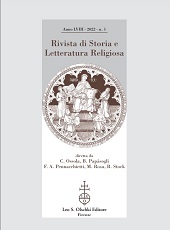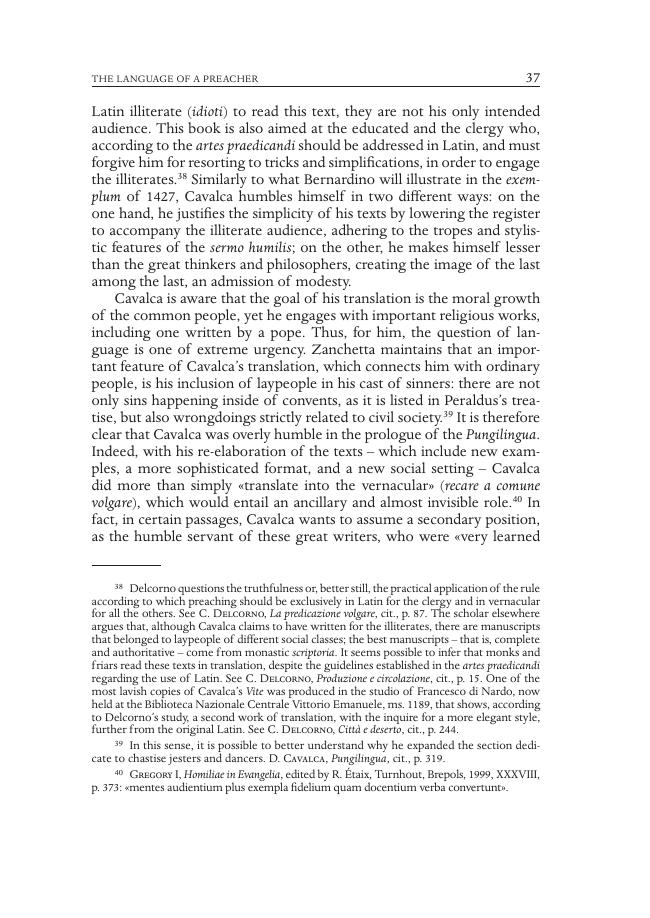The language of a preacher : Cavalca, Passavanti, and the firts steps toward a national vernacular
P. 27-50
The issues of communication and understandability seem to encompass the interests and concerns of many preachers in different parts of Europe. In their mission of spreading the message of the Holy Scriptures and their fight against heresies, preachers struggled with the language to use, between the authority and exclusivity of Latin and the uncertainties and necessity of the vernaculars. In Italy, the Dominican friars Domenico Cavalca, with his vernacularizations, and Jacopo Passavanti, in his moral treatise, were among the forerunners of issues of communicability to a wide audience. This paper will first consider Cavalca's writings and his theory of translation, stressing the special role played by the Dominicans' Studium in Pisa.
Furthermore, it will investigate Jacopo Passavanti's ideas on the vernacular, vis-à-vis his theory of language and his description of the Italian vernaculars in his search for the perfect language of translating the Scriptures, akin to Dante's De Vulgari Eloquentia. Finally, it will argue that these preachers, by addressing issues of translation, helped to shape a vernacular that was more accessible and could better suit their listeners. [Publisher's text]
Forma parte de
Rivista di storia e letteratura religiosa : LVIII, 1, 2022-
Artículos del mismo número (disponibles individualmente)
-
Información
Código DOI: 10.1400/288387
ISSN: 2035-7583



